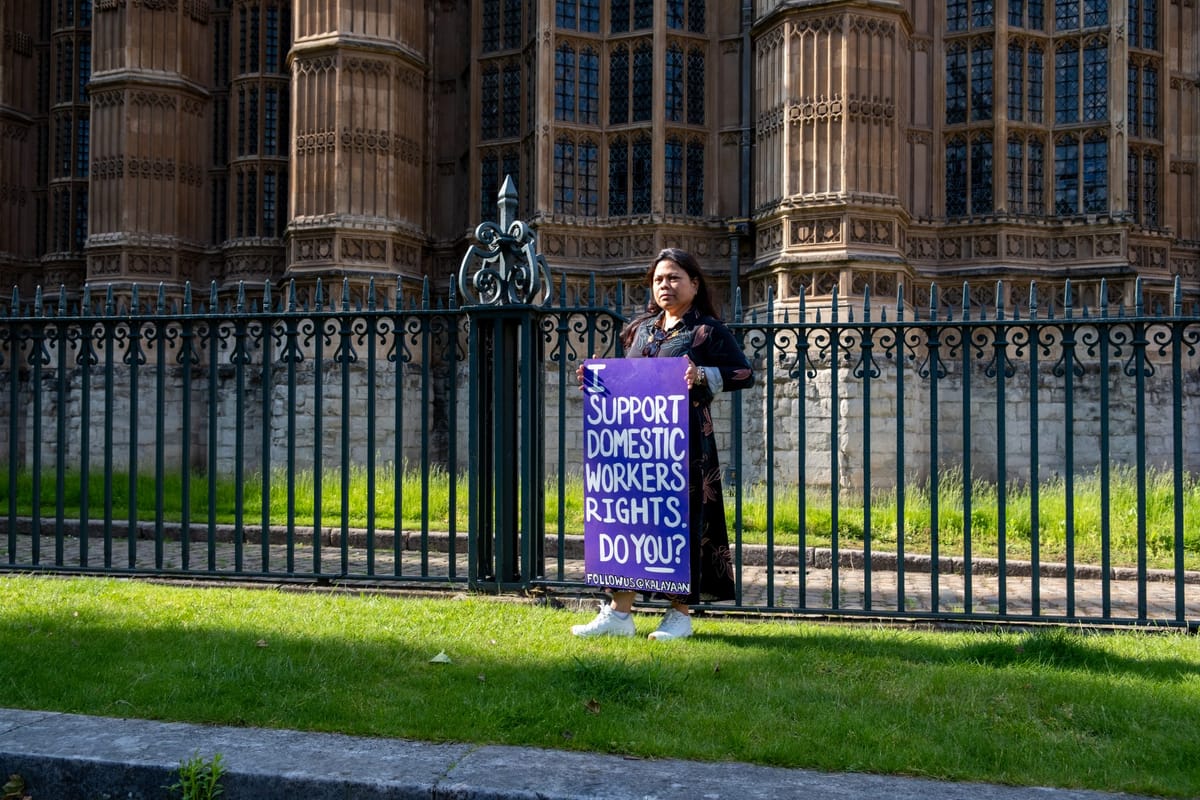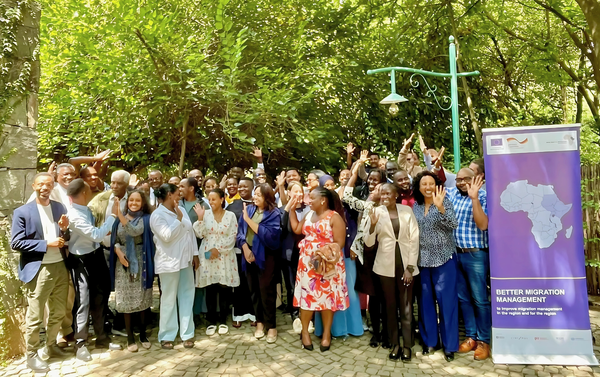Migrant domestic workers in the UK lack protections amid increasing abuse

A new report claims the UK has rolled back domestic workers’ rights even as its legal system facilitates their exploitation, GFEMS announces its closure at the end of the year, and African child migrants are brutally exploited by European drug cartels.
A report released on International Domestic Workers’ Day on Sunday details new evidence of the increasing rates of abuse experienced by migrant domestic workers in the UK, and the smokescreen the UK Government uses to deny their safety. Produced by Kalayaan, which provides advice, advocacy and support services in the UK for migrant domestic workers, the report also highlights the legislative and policy framework which, it says, facilitates their exploitation and excludes them from fundamental protections by removing hard-won labour-law rights in the name of immigration enforcement and restricting support for those workers who have experienced severe abuse.
In 2012, in the face of vehement and widespread opposition, the UK Government made drastic changes to the terms of the Overseas Domestic Worker visa, which had permitted workers the right to change employer and renew their visa if they could demonstrate their labour was still required. Such safeguards were instrumental in enabling workers to leave abusive situations and access reporting mechanisms to hold employers accountable from the safety of alternative employment. Workers also had the right to apply to have their spouses, partners and minor children join them and, after five years of continuous employment, to apply to settle in the UK. The 2009 Home Affairs Select Committee Inquiry into Trafficking found this visa regime and the protection it offered was the single most important issue in preventing workers’ forced labour and trafficking.
However, these same rights were stripped from workers when the Government announced it was restoring the visa to its original purpose in allowing visitors and diplomats to be accompanied by their domestic staff, without providing permanent access to the UK for “unskilled” workers. In response to criticism that this would institutionalize the abuse of workers by tying them to their employers, the Government claimed there were other ways of providing protection, such as through the UK’s National Referral Mechanism (NRM).
Furthermore, against the backdrop of the UK’s hostile environment for migrants, Government policy has seen immigration enforcement prioritized and protections for migrant workers placed within a trafficking framework. Workers now have to demonstrate that their treatment has deteriorated to the point of slavery before they are able to seek redress, meaning they fall into a gap within the UK’s protection measures in which they are entirely hidden from view and at high risk of being preyed upon by unscrupulous employers. This reactive approach does nothing to prevent abuse escalating, the report says, places an evidential burden on workers, and obfuscates the role the state plays in handing more control to employers.
The study also aims to scrutinize and dismantle the key myths that have been relied on by the Government when rejecting calls to reinstate labour law rights for workers, including: that there is insufficient data to show widespread mistreatment of workers; that workers are provided with information on their rights and where to seek advice; that workers and employers are subject to UK employment laws; that workers change employers for reasons other than abuse; that the NRM protects abused workers; and that visa renewals increase the risk of exploitation. Ultimately, these myths are a smokescreen for the state’s failure to ensure the legal system does not facilitate the abuse and exploitation of this workforce, the report says, adding that they are not rooted in evidence and do not meet the needs of workers, therefore placing workers at risk of harm.
Kalayaan recommends that, following the UK’s general election on 4 July, the incoming Government restores the pre-2012 visa regime, establishing rights to ensure the safety and dignity of all workers while in the UK, including the right to change employer, the right to renew their domestic worker visa annually, the right to be joined by spouses, partners and children under 18, and the right to settle in the UK after five years of continuous work as a domestic worker.
Here’s a round-up of other noteworthy news and initiatives:
The Global Fund to End Modern Slavery (GFEMS) has announced it will conclude operations by the end of 2024. The Freedom Fund acknowledged GFEMS’s achievements over the past decade, including securing US$175 million for anti-slavery programs in 27 countries and gaining significant government funding commitments.
Today, Equidem released a new report entitled “Broken Promises: Forced Labour in Saudi Arabia and the Fast-Tracked World Cup Bid”. The report presents findings from interviews with migrant workers in Saudi Arabia’s hospitality, maintenance, and construction sectors, documenting significant labour and human rights violations, including workplace violence and indicators of forced labour.
Last week, the United States Department of Homeland Security added three Chinese companies to its list of businesses whose products are banned from import into the U.S., citing ties to forced labour in Xinjiang. The companies include Shandong Meijia Group, which was accused by the Outlaw Ocean Project of employing Xinjiang labourers, Xinjiang Shenhuo Coal and Electricity, involved in producing aluminum for consumer goods, and Dongguan Oasis Shoes, accused of employing Uyghurs and others at its Guangdong footwear factory.
A Guardian investigation reveals that hundreds of unaccompanied African child migrants are being forced to work as foot soldiers for drug cartels in Europe’s booming cocaine trade. These children face brutal exploitation, including torture and rape, by criminal networks looking to expand their market, with EU police forces identifying widespread cases of trafficking and abuse.
The Marshall Project has found nearly 100 people in the United States who were punished for the actions of their abusers under little-known laws such as “accomplice liability”. These laws, present in every state, often lead to the prosecution of intimate partner violence victims, holding them accountable for crimes committed by their abusers.
The Re:Structure Lab at Simon Fraser University has been awarded grant funding from Humanity United Action and the Ford Foundation to support its research and policy efforts to combat forced labour. This funding will help the Lab strengthen links between research and public policy, providing businesses and policymakers with evidence to drive innovations in business models and supply chains to eradicate severe labour exploitation.
The Global Fund for Children (GFC) is seeking a Deputy Regional Director to join its Europe and Eurasia team and Global Programs, which are dedicated to empowering children and youth through innovative resource allocation and advocacy. This role will support the Senior Regional Director in expanding the team and grantee partnerships across 14 countries, emphasizing participatory grantmaking in its US$30.4 million (24 million pounds) program.




